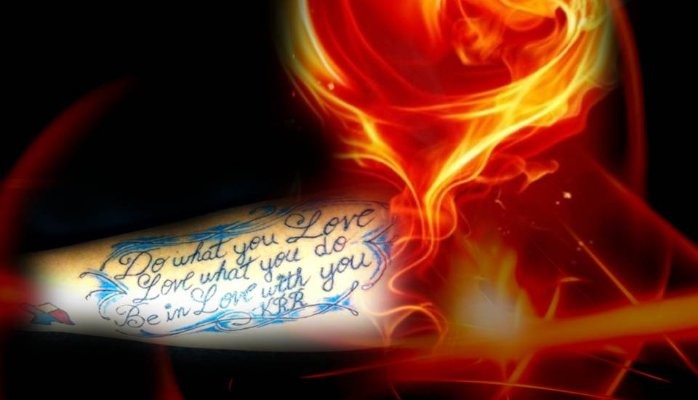
What if there was no 9-1-1?
In a recent NBC news report, it was noted that the Albuquerque Dispatcher has resigned. Chris Carver of National Emergency Number Association (NENA) stated that "hiring the right people can sometimes be more important than training."
While I agree there needs to be a more rigorous selection process for emergency dispatchers, there needs to be up front training that informs the individual about the occupation they are entering. Too many times as a 911 Director I would see people answer the interview questions "can you work weekends, holidays, overtime, etc" with a resounding "YES." At first, anyone who thinks the job is solely answering a phone and dispatching units will obviously say "yes."
There is an almost secret culture that you must fit into. You must realize that working all of that overtime and those holidays is not a myth or a test question. You give up family time. You sacrifice "normality" and most of all, you become jaded. The sinister truth about emergency dispatchers is that NONE OF THEM SIGNED UP TO BECOME "LIKE THAT." To define "that" is to see the reports in the news about the negativity, the callousness, and the complacency.
At the 9114911 conference in Chicago this September 17 & 18, REAL, live dispatchers get up on stage and talk about overcoming "that." They attest to what it is really like to miss your kids' events, and sacrifice Christmas, and work dozens of hours of overtime. They tell how they survived and how they keep going. They talk about the stressors of the horrific, critical, unimaginable calls and they speak to the survival of carrying around all of that gore. The memories eventually fade, but they never make sense. So, at this conference, everyone has permission to share, talk, tell it like it is, and learn how to overcome, before reaching a breaking point like the dispatcher in Albuquerque.
I'm not making excuses for him. As an expert witness, I would also be scouring his training and history of call intake. So, yes, the job is stressful (that word is hardly sufficient) and yes, there is a lot of discussion about PTSD and other debilitating suffering that emergency dispatchers endure. The REAL question is, do people understand fully what they are signing up for Mr. Carver? And how are they prepared on the front end? Why are we only now, some 47 years after 911 was born, beginning to research these courageous heroes left unattended?
We need more attention, more training, more assurance, more accolades for these heroes that everyone seems to want to throw away like a fast food wrapper. These are amazing individuals who hold lives (and deaths) in their heads, their hands, and their hearts forever.
Let's build better dispatchers and pay attention before they have that breakdown.
Kelly R. Rasmussen, PhD (Public Safety Leadership)
www.SuccessCommunicationsInc.com
DrKellyRasmussen@gmail.com
B.A.Sc. Emergency Management, OSHA Certified, EMT-B, BLS CPR Instructor, 911 Dispatcher
8ySo very true!
Public Safety Leadership Expert, Author, Trainer, Coach
8yMr. John Hilliard and Ms. A. Benedetti, it is true that the stress "sneaks up on" the dispatcher and becomes a cumulative atrocity in some. My research shows that if one a) goes in aware of the culture and b) has varied (and appropriate) coping strategies and c) knows when they vary from their baseline, they fare much better. You know the ones who have been doing the job through thick and thin for 20, 25, 30 (and more) years who still have a smile on and love their job. They are awesome at the work/life balance and can tell you a thing or two about dealing with the stress. Some of those mentioned will be on stage at the 9114911 conference; so I can confirm that they exist!! :)
Retired
8yFor those who don't live behind the microphone, a little insight into our world. Being a dispatcher / call taker is an adventure in stress. In the past, the "culture" expected you to "suck it up", and if you had problems then you were just one of the ones that "couldn't hack it". We talk to people who are in the middle of a crisis, often hysterical or hostile to the point of being unable or unwilling to communicate effectively. We work short staffed, sometimes unable to get a break or a lunch. Multiple calls need to be prioritized and units assigned, although often there aren't enough resources to go around. Many of us work shift-work, often changing shifts on a weekly basis. Holidays are just another day at work, and being forced to stay after a fellow employee calls in sick is just icing on the cake. Stress is cumulative, and being able to effectively handle that stress is quite literally the key to survival. Some dispatchers suffer from stress related medical problems including cardiac issues, high blood pressure, and shift-work sleep disorder, but the psychological impacts of the job don't show up on a routine physical. Some dispatchers engage in less than healthy "stress relieving" behavior including smoking, excessive drinking, and overeating which all tend to exacerbate those medical issues. There needs to be a wider recognition of the problem on all levels, and there must be resources provided that allow for dispatchers and call takers to engage in positive stress relieving behavior. If that doesn't work, it is imperative to enable them to seek help without being labeled as someone that "can't hack it". Thanks Kelly for helping bring this to the forefront.
Public Safety Leadership Expert, Author, Trainer, Coach
8yAnother example - http://www.seattletimes.com/seattle-news/crime/skagit-county-911-system-struggles-with-understaffing/